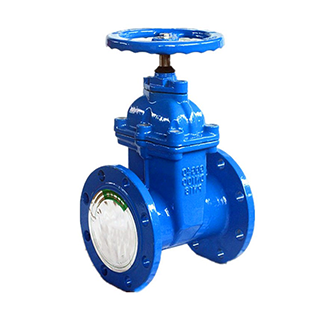8 Inch Flange Specifications and Installation Guidelines for Effective Pipeline Solutions
Understanding the 8-Inch Flange An Essential Component in Various Industries
Flanges are critical components in piping systems, designed to connect pipes, valves, pumps, and other equipment, forming a tight seal that can withstand the pressures and temperatures of numerous industrial applications. Among the various types of flanges available, the 8-inch flange is particularly noteworthy due to its widespread use in many sectors, including oil and gas, water treatment, chemical processing, and construction.
What is an 8-Inch Flange?
An 8-inch flange refers to a flange that has a nominal diameter of 8 inches. Flanges come in various standard sizes, and the 8-inch size falls within the larger range, making it suitable for carrying significant volumes of liquid or gas. The dimensions of an 8-inch flange can vary depending on the flange standard being used, such as ANSI (American National Standards Institute), ASME (American Society of Mechanical Engineers), or DIN (Deutsches Institut für Normung).
Types of 8-Inch Flanges
There are several types of 8-inch flanges, each designed for specific applications and environments. The most common types include
1. Blind Flange This type of flange is used to seal the end of a piping system and is unable to be opened. It is often employed in applications where temporary closure is needed.
2. Slip-On Flange As the name suggests, this flange slips over the pipe, making it easy to install. It requires welding on both sides to ensure a tight connection.
3. Weld Neck Flange This flange has a long tapered neck, which provides a strong connection to the pipe. It is often used in high-pressure applications and offers excellent stress distribution.
4. Socket Weld Flange This type allows the pipe to be inserted into the flange, which is then welded in place. It is typically used in smaller-diameter pipes.
5. Threaded Flange Designed for use with pipes that have threaded ends, this flange can be easily disassembled, making it ideal for applications where frequent maintenance is required.
Material Considerations
The material of the 8-inch flange is crucial for its performance and durability. Common materials used for manufacturing flanges include
flange 8 inch

- Carbon Steel Widely used for its strength and affordability, carbon steel flanges are suitable for a variety of applications but may require protective coatings to prevent corrosion.
- Stainless Steel Known for its excellent resistance to corrosion and high temperatures, stainless steel flanges are often used in food processing, chemical manufacturing, and marine applications.
- Alloy Steel For applications involving high temperatures and pressures, alloy steel flanges provide enhanced strength and durability.
- Plastic and Composite Materials In certain applications, especially in the chemical industry, plastic flanges may be used for their resistance to corrosive substances.
Applications of 8-Inch Flanges
The versatility of 8-inch flanges makes them suitable for various applications
- Oil and Gas Industry Used in pipelines to connect different segments, flanges play a critical role in transporting crude oil and natural gas from extraction sites to refineries and distribution centers.
- Water Treatment Facilities Flanges are essential in the construction of water treatment plants, where they are used to connect different pieces of equipment, such as pumps and filters.
- Chemical Processing Plants Given the corrosive nature of many chemicals, 8-inch flanges made from stainless or special alloys ensure safety and compliance with industry standards.
- HVAC Systems In heating, ventilation, and air conditioning systems, flanges connect ductwork and equipment, ensuring the efficient flow of air.
Conclusion
The 8-inch flange is a vital component in modern industrial systems, providing secure connections and contributing to the efficiency and safety of various operations. Understanding the types, materials, and applications of 8-inch flanges can help professionals make informed decisions when designing and maintaining piping systems. Whether in oil and gas, chemical processing, or water treatment, the reliability of 8-inch flanges ensures the smooth functioning of crucial infrastructure. As industries continue to evolve, the demand for high-quality, durable flanges will remain significant, underscoring their importance in engineering and construction.
-
The Key to Fluid Control: Exploring the Advantages of Ball Valves in Industrial SystemsNewsJul.09,2025
-
The Versatile World of 1, 2, and 3 Piece Ball ValvesNewsJul.09,2025
-
Stainless Steel Ball Valves: The Ideal Choice for Efficient Flow ControlNewsJul.09,2025
-
Optimizing Fluid Control with Ball Float ValvesNewsJul.09,2025
-
Manual Gate Valves: Essential for Control and EfficiencyNewsJul.09,2025
-
Everything You Need to Know About Butterfly ValvesNewsJul.09,2025
-
The Versatility of Wafer Type Butterfly ValvesNewsJul.08,2025




